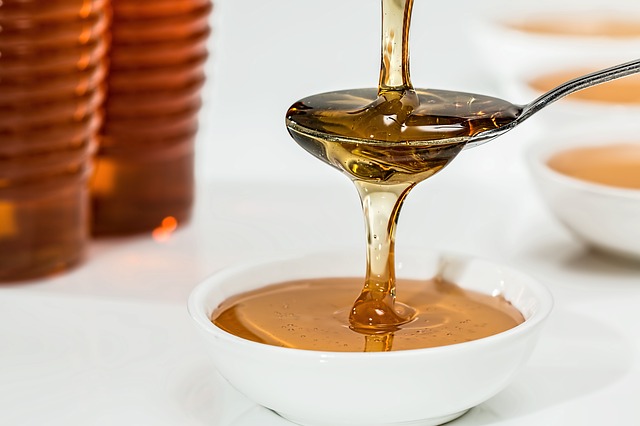From superfood to liquid gold, the benefits of Manuka Honey are endless, we caught up with research scientist Nural Cokcetin to hear her learnings on the sticky substance.
What Makes Medical Grade Manuka Honey A Good Antibacterial?
Honey in general has several antibacterial properties, which includes:
- A high concentration of sugars which can dehydrate or dry out the bacteria
- A low pH level which creates an acidic environment that most bacteria can’t tolerate
- The production of hydrogen peroxide which is toxic to bacteria
The additional antibacterial activity of Manuka honey comes from a particular naturally occurring chemical that is derived from the floral source.
This chemical is called methylglyoxal or MGO and the activity that stems from this chemical is often called non-peroxide activity. The presence of this MGO or non-peroxide activity is special to Manuka, we don’t see it arise in other types of honey.
What Is Manuka Honey – How Does It Differ From Regular Table Honey?
Manuka honey is made by honey bees from the nectar of a certain type of plant called the Manuka plant.
The scientific name for this group of plants is Leptospermum and its native to New Zealand and Australia, which makes the plant and the manuka honey that we get from it very rare.
Although Manuka honey can be used as a table honey, what makes it special is its many different medicinal properties – and the most well-known property is its unusually high levels of antibacterial activity that we don’t see in other types of honey.
The antibacterial activity was first discovered by scientists (Prof Peter Molan + group) in New Zealand in the 1980s and since then, we’ve done a lot of work to understand this activity and where it comes from and also to understand many of the other medicinal properties Manuka honey has – like wound healing and anti-inflammatory properties.
Explain How Medical Grade Manuka Helps The Healing Process In Wounds?
Wound healing is a complex process, and although we don’t fully understand the process yet we do know that there are certain things that help to promote wound healing and medical grade Manuka honey can help.
We know that maintaining a moist wound environment helps to promote the regrowth of new skin (epithelialisation) while simultaneously preventing the growth of infection causing microbes are ideal.
Using Medical grade Manuka honey is beneficial in this situation because of its ability to maintain the moist conditions while providing a protective barrier to reduce the risk of infections at the same time due to its antibacterial activity.
Medical grade Manuka honey also has a debriding action which can remove the ‘dirt’ or ‘gunk’ from the wound, and it helps to reduce wound odour.
You can find much more information on living a holistic lifestyle in these free magazines and on our YouTube channel.
ABOUT DR NURAL
 Dr Nural Cokcetin is research scientist specialising in the field of microbiology at the ithree institute, University of Technology Sydney. Nural’s current research focuses on understanding the antimicrobial properties of honey, with a drive to use this knowledge to develop new treatments for infections caused by multi-drug resistant superbugs. Nural’s PhD focused on investigating the use of honey as a prebiotic to improve human gut health and she was one of the first researchers to show a positive impact of eating honey on the beneficial gut populations.
Dr Nural Cokcetin is research scientist specialising in the field of microbiology at the ithree institute, University of Technology Sydney. Nural’s current research focuses on understanding the antimicrobial properties of honey, with a drive to use this knowledge to develop new treatments for infections caused by multi-drug resistant superbugs. Nural’s PhD focused on investigating the use of honey as a prebiotic to improve human gut health and she was one of the first researchers to show a positive impact of eating honey on the beneficial gut populations.
For further information on Manuka honey visit www.comvita.com.au






